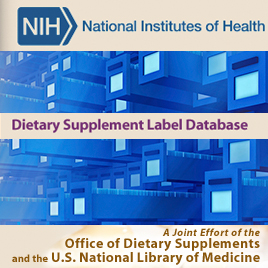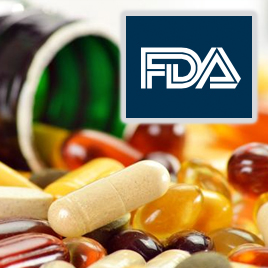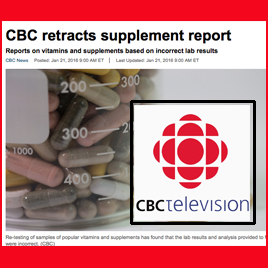CRN will require member companies to submit labels to government database as condition of membership
Calling it “a first, and necessary, step toward improving transparency” in the dietary supplement industry, CRN’s Board of Directors has mandated as a condition of membership that its companies submit their supplement product labels to the National Institutes of Health (NIH) Office of Dietary Supplements (ODS) Dietary Supplement Label Database (DSLD). The requirement, which will go into effect in 2017, applies to those companies listed as the responsible party on the product label for all dietary supplement products marketed in the U.S.
“This marks the start of a new era for our industry,” said CRN President/CEO Steve Mister. “Our members can no longer allow those companies skirting the laws to tarnish our reputation. This first step toward greater transparency for regulators and researchers is long overdue, and we strongly urge others in the industry to work with us on this and future initiatives that will ultimately build a stronger industry,” Mr. Mister declared.
CRN plans to encourage all marketers of finished dietary supplements to actively submit labels to the database and suggests retailers consider requiring participation for all supplements they put on store shelves. “If you are going to offer dietary supplements for your customers, it just makes sense to insist that the vendor includes the products in the ODS database,” Mr. Mister said.

|
Supplement regulation gets elevated at FDA
After urging Congress to approve the move, CRN welcomed the elevation of the Division of Dietary Supplement Programs (DDSP) to an “Office” status within the Food and Drug Administration’s (FDA) Center for Food Safety and Applied Nutrition (CFSAN). As of December 20th, it will be known as the Office of Dietary Supplement Programs (ODSP).
In announcing the change, FDA said, “In the 20 years since the establishment of the dietary supplement program, the industry has grown from about $6 billion to more than $35 billion in annual sales. Elevating the program’s position will raise the profile of dietary supplements within the agency, and will enhance the effectiveness of dietary supplement regulation by allowing ODSP to better compete for government resources and capabilities to regulate this rapidly expanding industry.”

|

CRN supports new legislation to allow tax-free purchase of supplements
Sen. Orrin Hatch (R-UT) and Rep. Erik Paulsen (R-MN) have re-introduced legislation that would allow, among other things, the purchase of dietary supplements with Health Savings Account (HSA) and Flexible Spending Account (FSA) funds. CRN, along with other industry associations, has strongly supported this bill in previous Congresses and urged that it be re-introduced this year.
A Natural Products INSIDER article quotes CRN’s Mike Greene, who explains the bill would allow consumers to use their FSAs to buy dietary supplements with their pre-tax earnings. CRN’s healthcare cost savings study demonstrates that use of selected dietary supplements saves the U.S. economy billions of dollars. |
They took it back—CBC retracts portions of supplement report
The Canadian Broadcasting Company (CBC) has retracted portions of its report on vitamins and supplements that mistakenly asserted certain products were tested and didn’t meet their label claims. CBC acknowledged these accusations were based on incorrect lab results noting that its Marketplace reports published in November contained incorrect information.

Dietary Guidelines for Americans recognize value of supplements
CRN is pleased that the recently released 2015–2020 Dietary Guidelines for Americans (DGA) recognize dietary supplements as having a role to play in achieving optimal nutrition. CRN participated in the guidelines’ development through scientific discourse, submitting written and presenting oral comments, and attending public meetings. CRN’s Duffy MacKay, N.D., senior vice president, Scientific & Regulatory Affairs, advised in a statement, “dietary supplements are supplements to, not substitutes for, a healthy diet. However, given the number of under-consumed nutrients in our population, dietary supplements are needed to fill in the nutrient gaps.”
The DGA identified calcium, potassium, dietary fiber, and vitamin D as nutrients of public health concern. Supplementing with vitamin D was also recommended, especially for those with limited exposure to the sun. Additionally, the DGA recommended iron supplementation for women who are pregnant, and folic acid for women “capable of becoming pregnant and who are pregnant.”
Dr. MacKay said, “We hope this influential roadmap for nutrition will help bring awareness to the real life need for supplementation.”
|